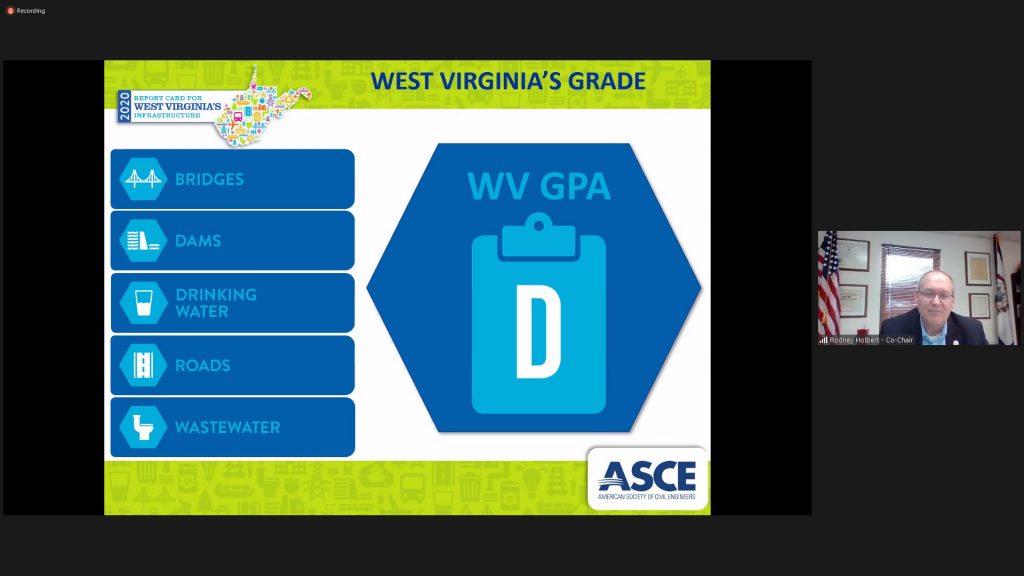On Wednesday, the West Virginia Section of the American Society of Civil Engineers (ASCE) released the 2020 Report Card for West Virginia’s Infrastructure, the Section’s inaugural report card. West Virginia civil engineers gave five categories of infrastructure an overall grade of a ‘D,’ meaning the state’s infrastructure is in poor condition, with many elements approaching the end of their service life. Civil engineers graded bridges (D+), dams (D), drinking water (D), roads (D+) and wastewater (D).
Event speakers from ASCE included Rodney Holbert P.E., P.S., M.ASCE, Tabitha Lafferre E.I., M.ASCE, and Dave Meadows P.E., P.S., F.ASCE. Also providing insights on “building a better West Virginia” and drawing from decades of engineering experience was Mr. Mike Clowser, Executive Director of the Contractors Association of West Virginia.
A particularly compelling feature of West Virginia’s approach to developing their report card and assessing the state’s infrastructure was the unique committee comprised of Fairmont State University engineering students and subject matter “Champions” or experts in their specific engineering field. The intergenerational, multi-career-level cohort served as a great model for other states interested in bridging engineering education with valuable leadership experience researching and developing engineering reports.
Aside from the five detailed chapters, West Virginia’s committee also developed some actionable, overarching recommendations to raise the state’s infrastructure grade including:
- Create a bond program for funding of water and wastewater systems similar to the 2017 Roads to Prosperity Program.
- Appropriate funding for the West Virginia Dam Safety Rehabilitation Revolving Fund Program to make resources for improvements and construction more accessible.
As the press conference drew to a close, the committee fielded questions from various media outlets, ASCE members, and elected officials about their findings and the way forward for West Virginia’s infrastructure. Overall, the committee explained that a crucial first step was the publication of this report card and the next steps include state and federal outreach and advocacy efforts.
